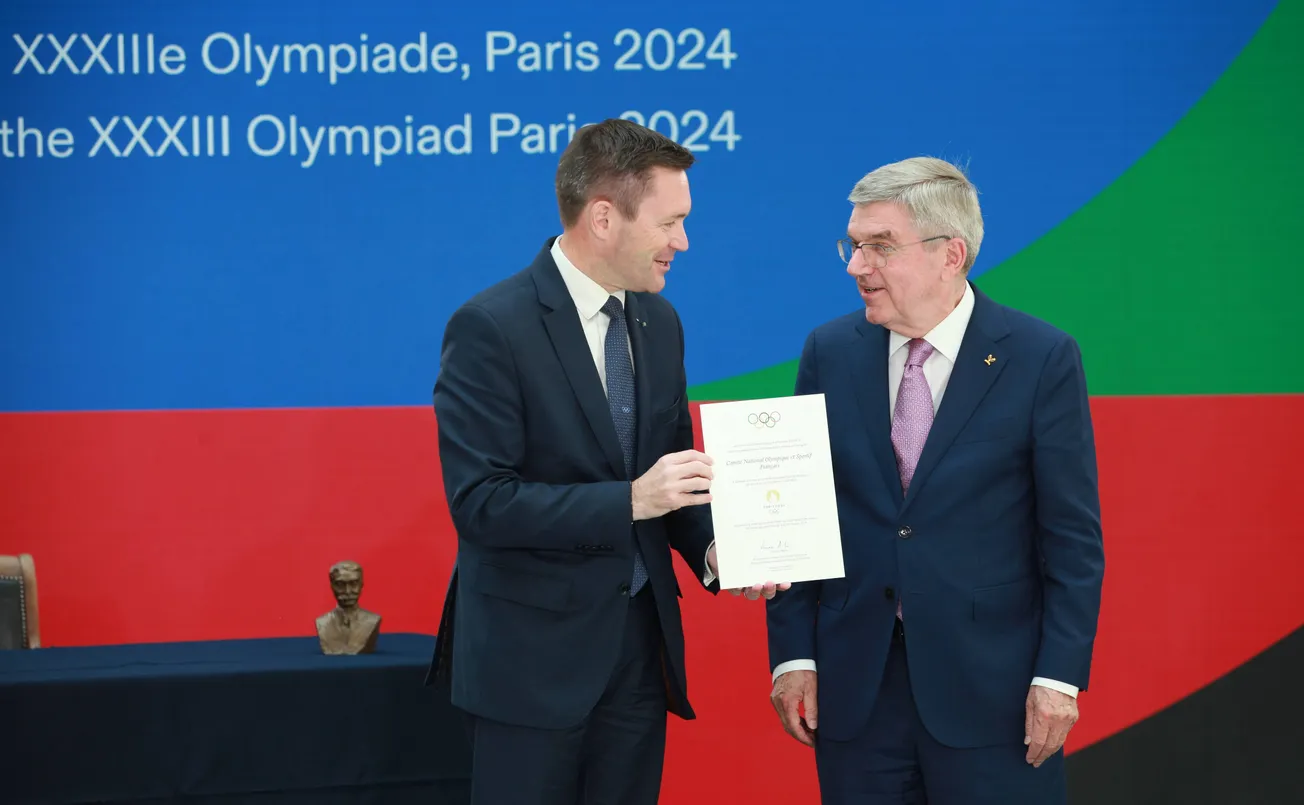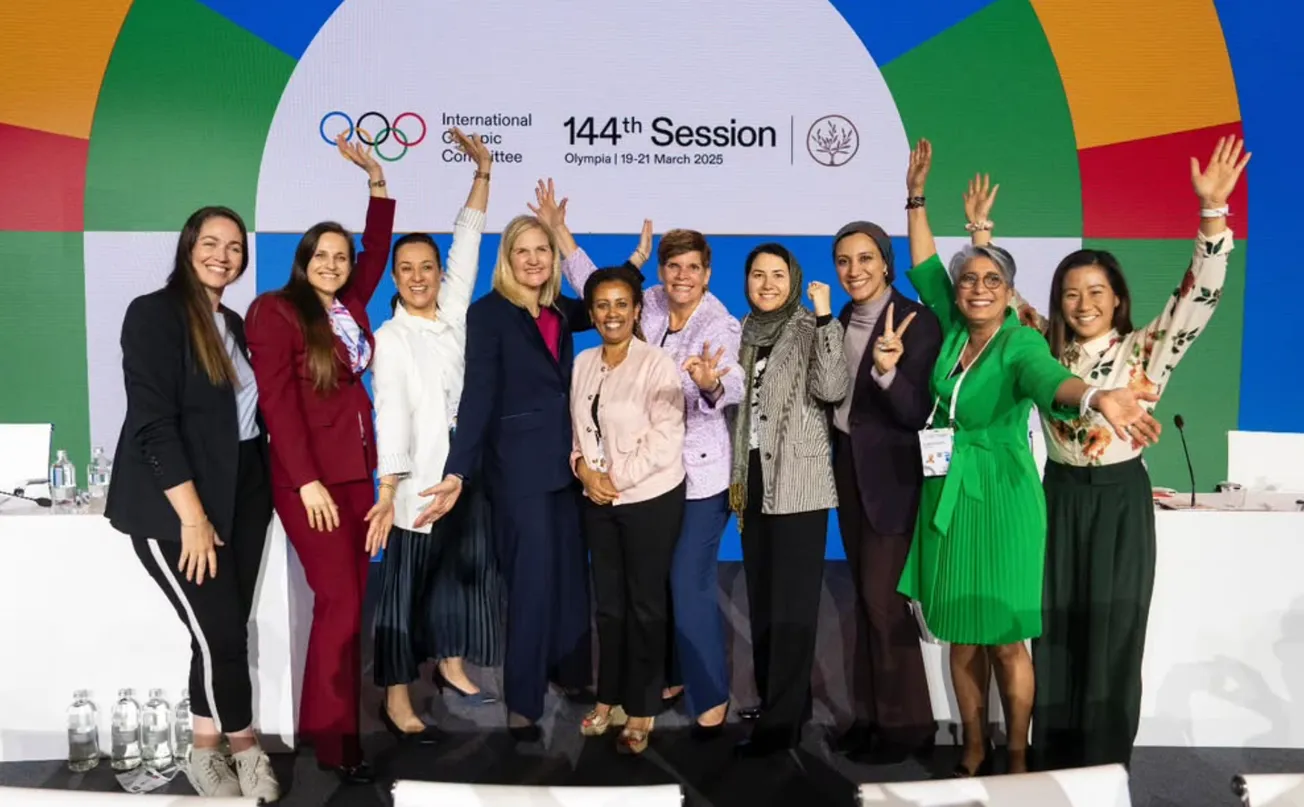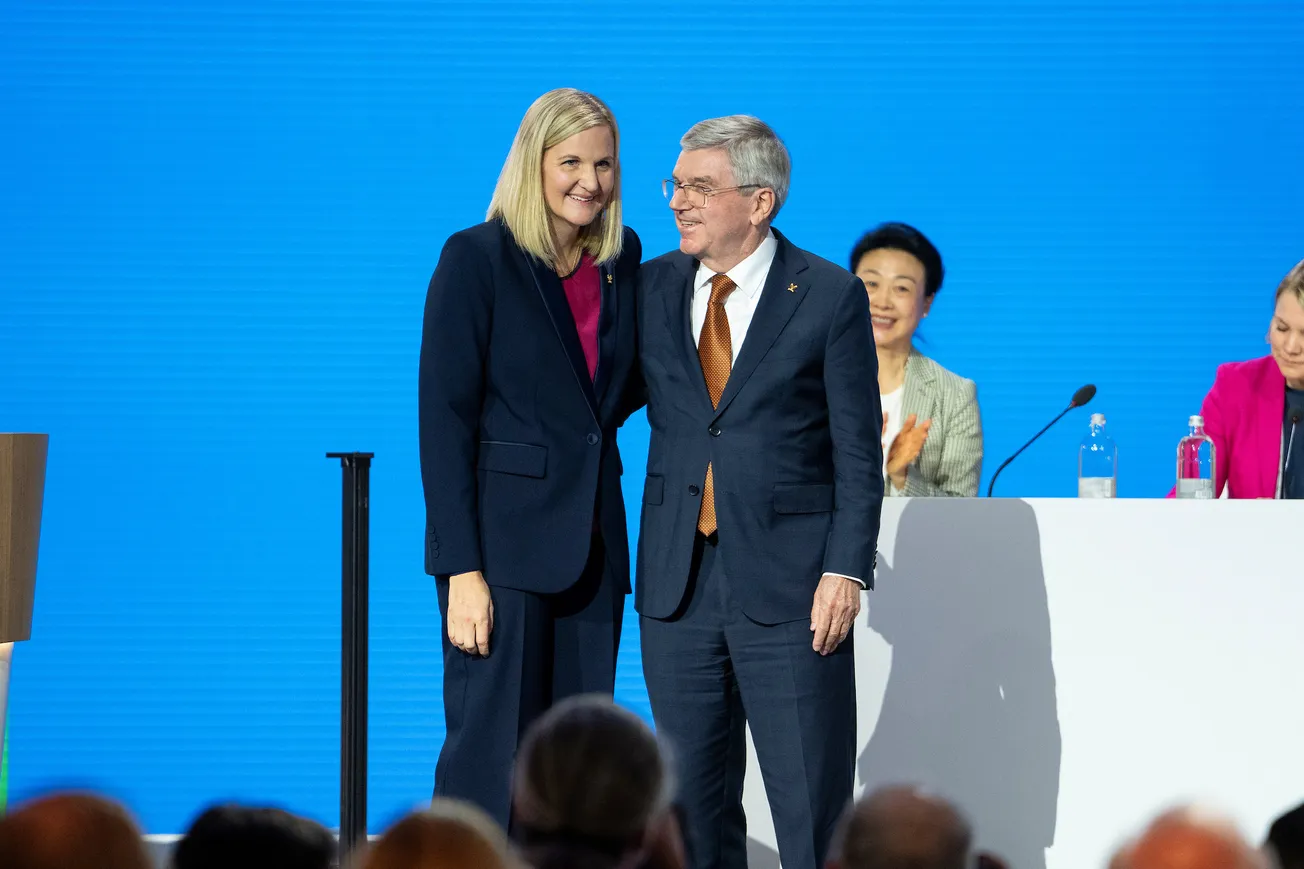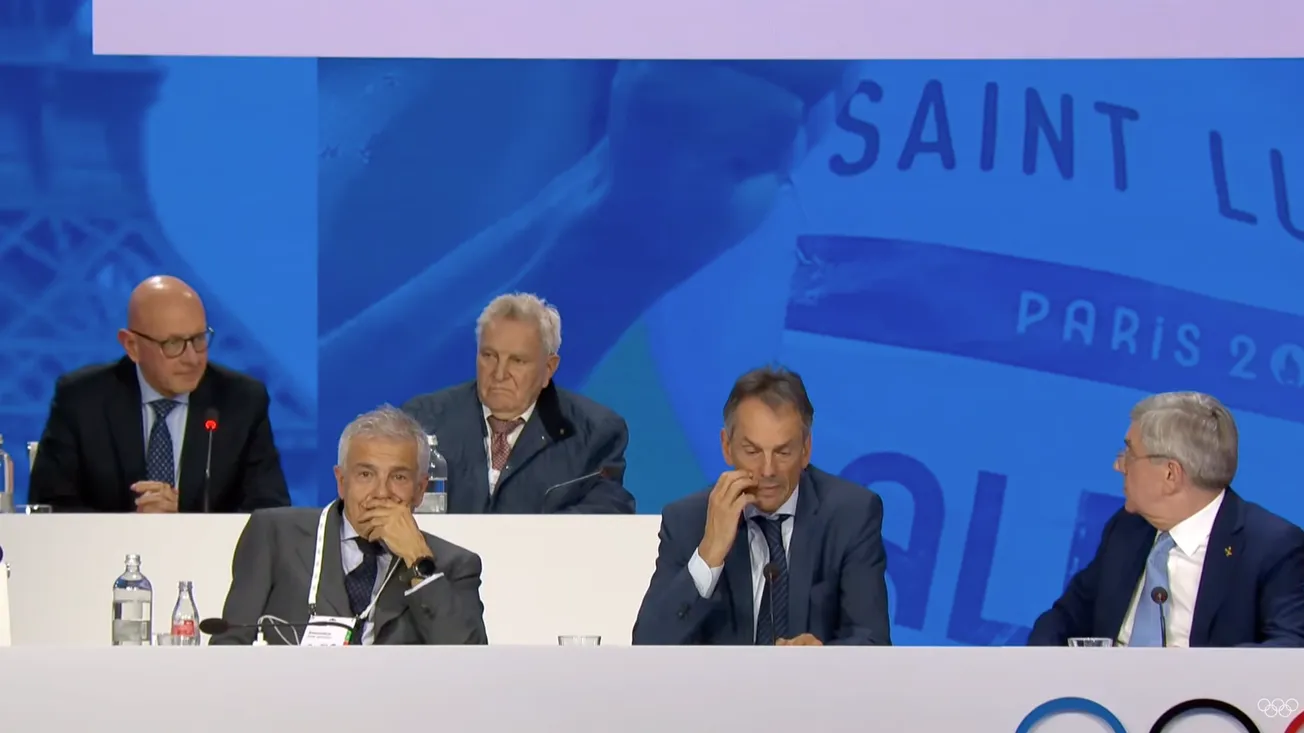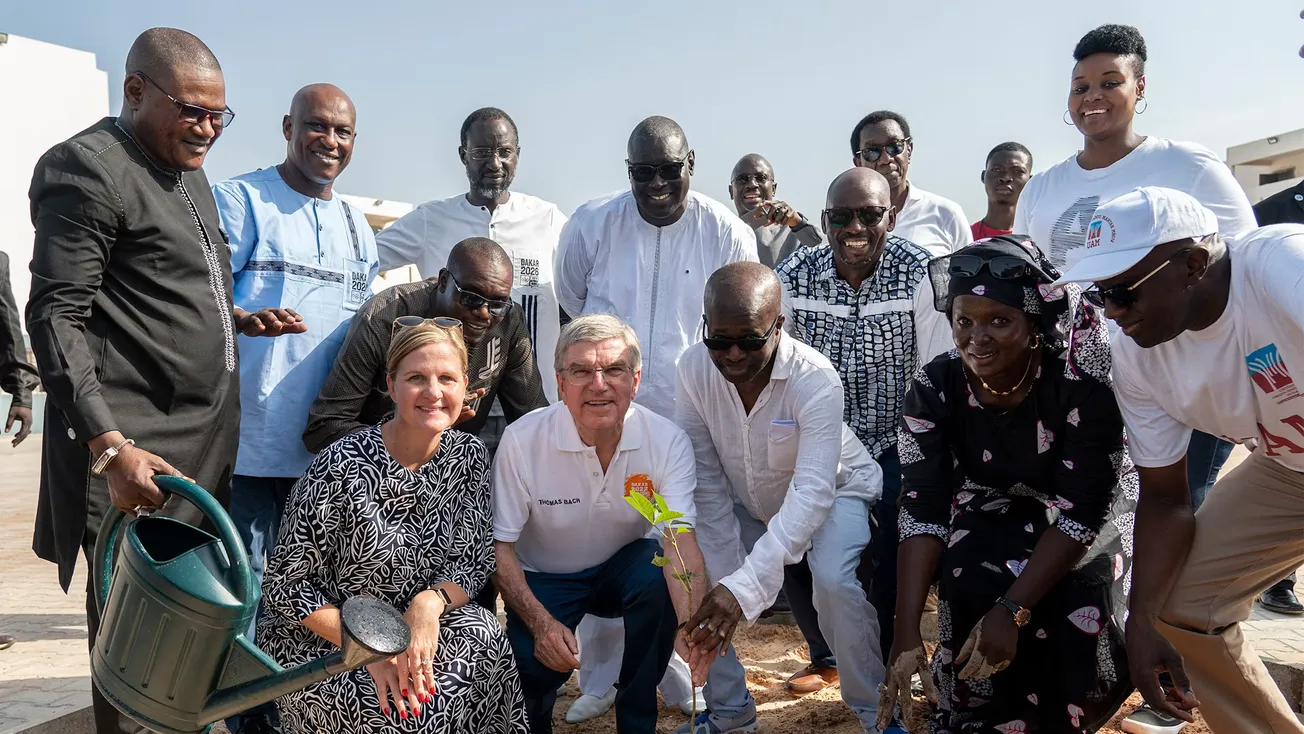PARIS. Thomas Bach, 70, is in his Olympic element. He is chatting a lot these days. He visits sponsors, politicians, athletes and traditionally also the International Broadcasting Centre (IBC), where there are quite a few TV managers and journalists who like to be photographed with the IOC president. They know each other, they appreciate each other, TV stations pay huge sums to the IOC Group, business partners meet. With a few exceptions, the TV coverage is as positive as the owner of the Olympic Games had hoped.
The IOC produces the TV images from Paris with its own companies. It is the corporate group's core business.
So the IOC president rants at every opportunity about the unifying magic of sport, he preaches Olympic values (that, in reality, are violated on a daily basis), he invokes the so-called Olympic Truce, his own Agenda 2020+5, the saviour of the movement praises the French hosts incessantly - all that jazz, as we have known it from him and his predecessors since time immemorial, one more, the other less.
Problems are usually the responsibility of others: the weather at the opening ceremony; National Olympic Committees like that of the Netherlands, which nominated a rapist; the Americans and some media representatives who criticise the alleged Chinese mass doping and won't let the World Anti-Doping Agency (WADA) rest - Bach and his highly paid lackeys always find an excuse.
One of the few exceptions was Bach's phone call with South Korean President Yoon Suk-Yeol, who complained that the Republic of Korea was introduced as the Democratic People's Republic of Korea at the opening ceremony last Friday. Bach is said to have asked Yoon to apologise. It took a while for that to happen.
I have no idea whether Bach really spoke to a president on the phone this time or whether he was being taken for a ride by Russian clowns again:
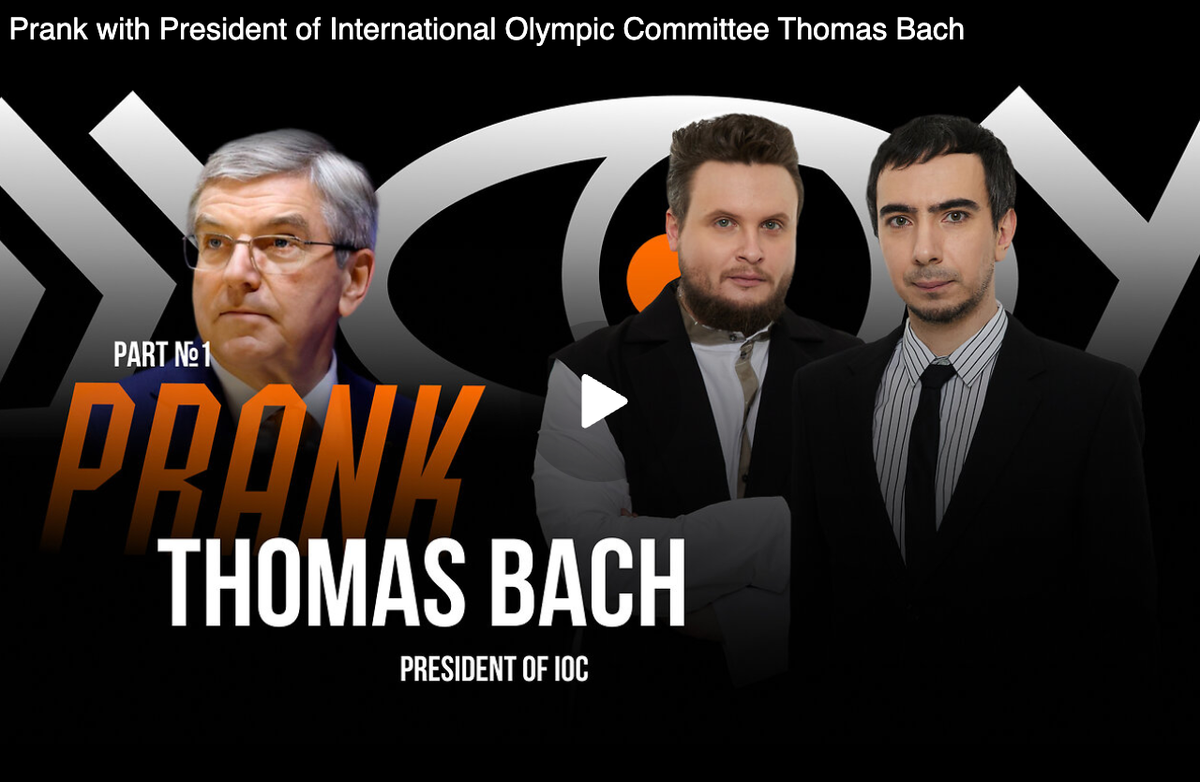
Imagine if the People's Republic of China had been introduced as Chinese Taipei - how quickly would Bach have proactively (he has loved this word for ages) apologised to Xi Jinping, recipient of the Olympic Order? What a fuss the Chinese would have made, it's hard to imagine.
So Bach talks and talks, his personal photographer Greg Martin follows him wherever he goes and documents almost every encounter for the IOC publications. What is currently being published is still quite discreet in terms of quantity; at the 2016 Summer Games in Rio de Janeiro, which Bach has not visited since then, it was much worse and became the first highlight of the cult of personality that had taken hold at the IOC.
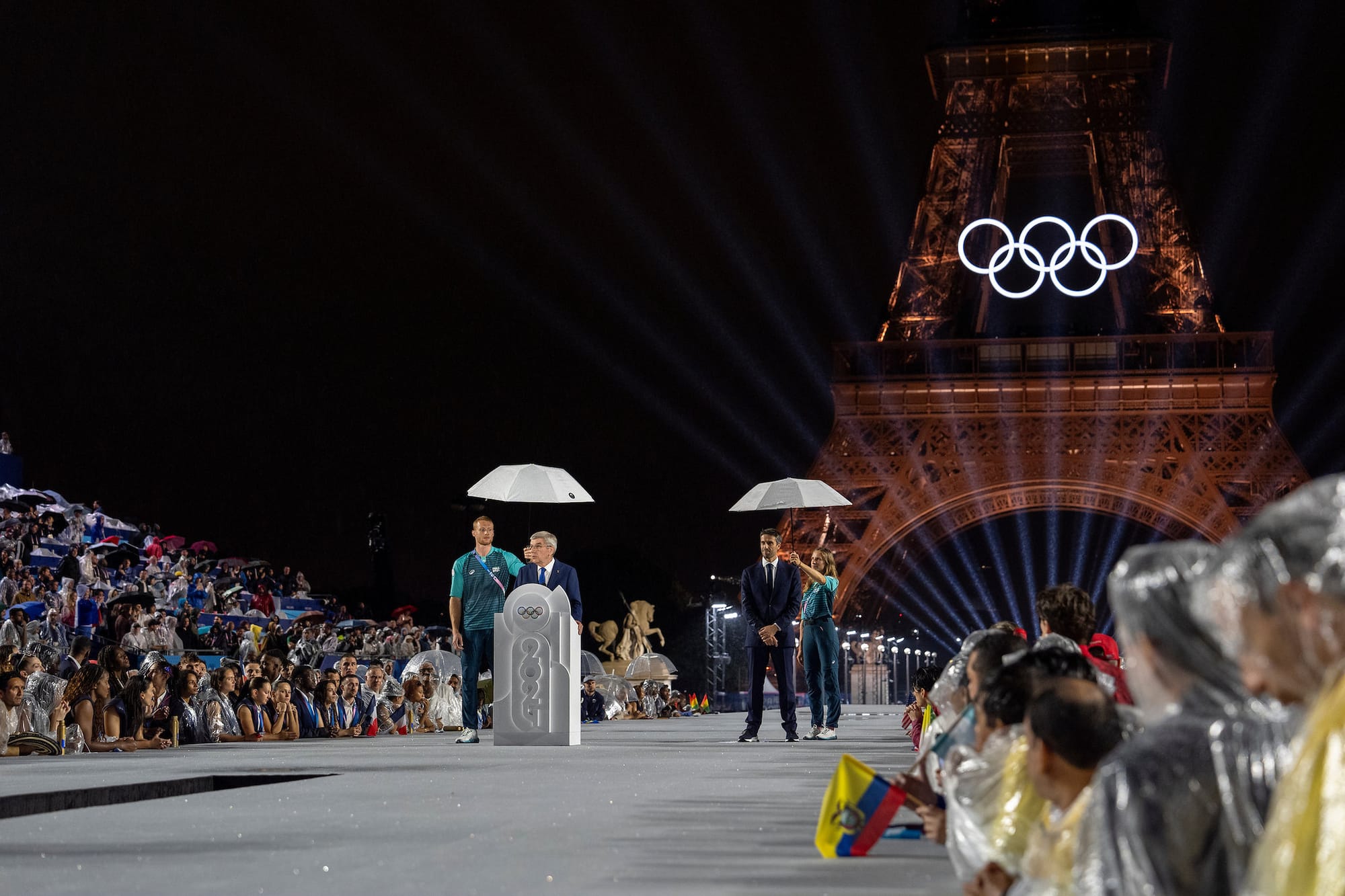
Bach's French is good, say the French. Better than his English. He antichambers and jokes and does and does and saves world peace on the side, this jack-of-all-trades from Tauberbischofsheim - but he doesn't answer the crucial question that the Olympic world is eagerly awaiting:
What the hell is going to happen next?
- Will he change the Olympic Charter and have the term limits for IOC presidents lifted?
- Will he carry on in 2025, when he should be stepping down, run for a third term and set a disastrous example for the entire sporting world?
The message would be clear, would cause enormous damage from a compliance point of view and already has, as Bach is postponing his decision. FIFA, UEFA and others have long since softened their rules, which were once imposed on them in lengthy proceedings under enormous public pressure from a few journalistic investigators, the US judiciary and some politicians.
The message that Bach has long since sent with his calculated restraint, and which would be extremely reinforced if he were to continue, is this:
Screw good governance and well-written ethics rules, we can do otherwise!
Limiting the term of office of IOC presidents was a central point in the so-called reform paper of the IOC in 1999, which was adopted at the end of a turbulent year under enormous public pressure. It was much more than just a bribery crisis at the time, flanked by the doping debate surrounding the Tour de France 1998 and the founding of WADA: it was about the very existence of the IOC, which expelled half a dozen members, cautioned several dozen and did not prosecute many others - because no investigation was carried out in the first place. Incidentally, it was also the first global crisis fuelled by the internet.

